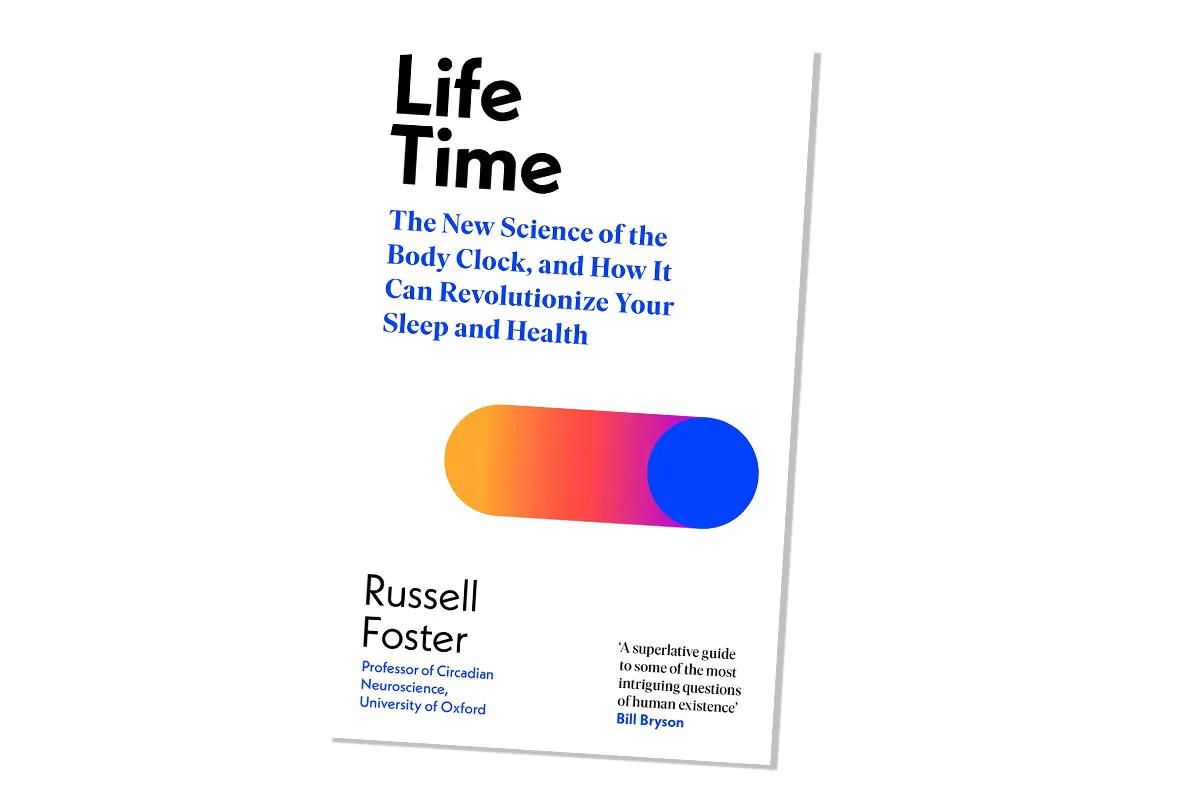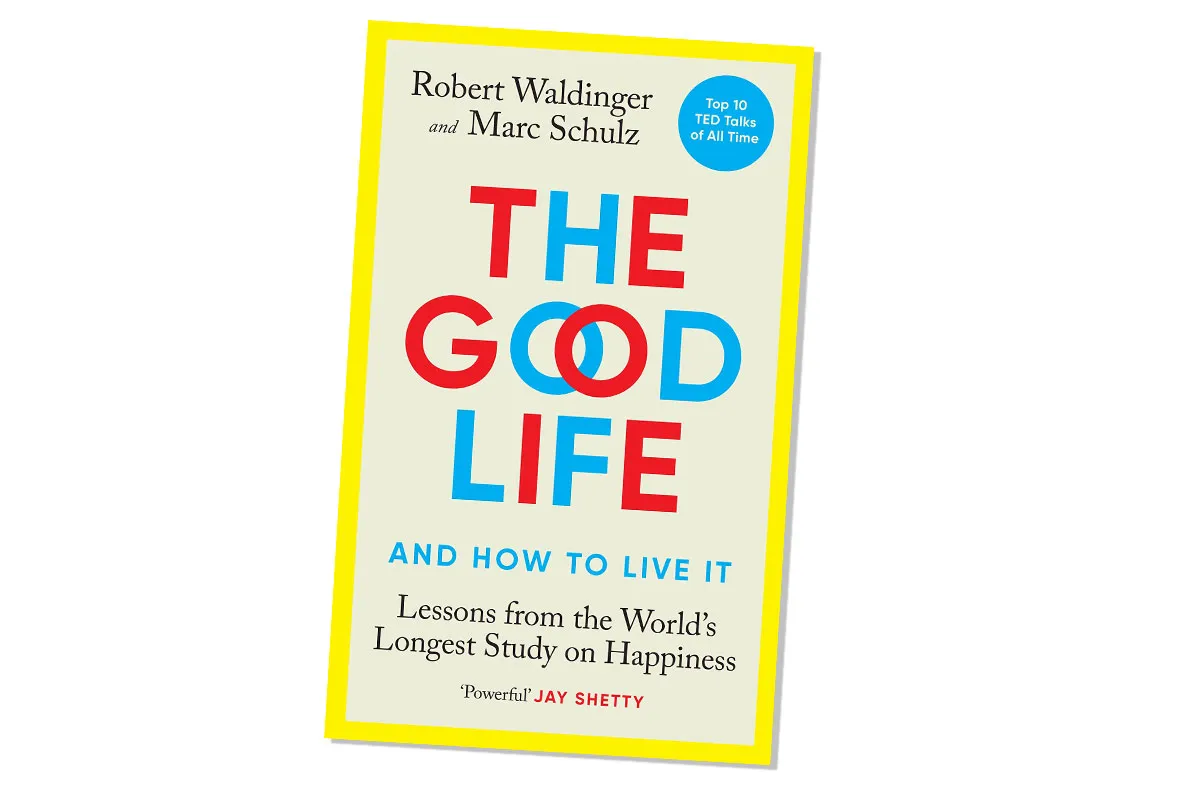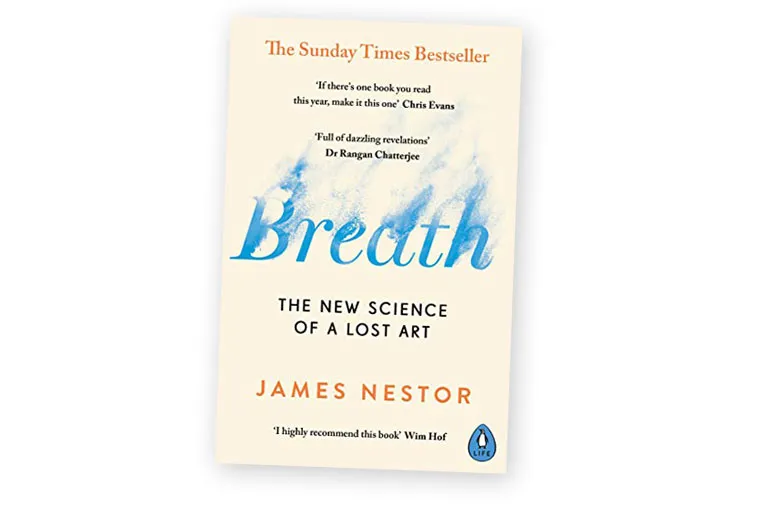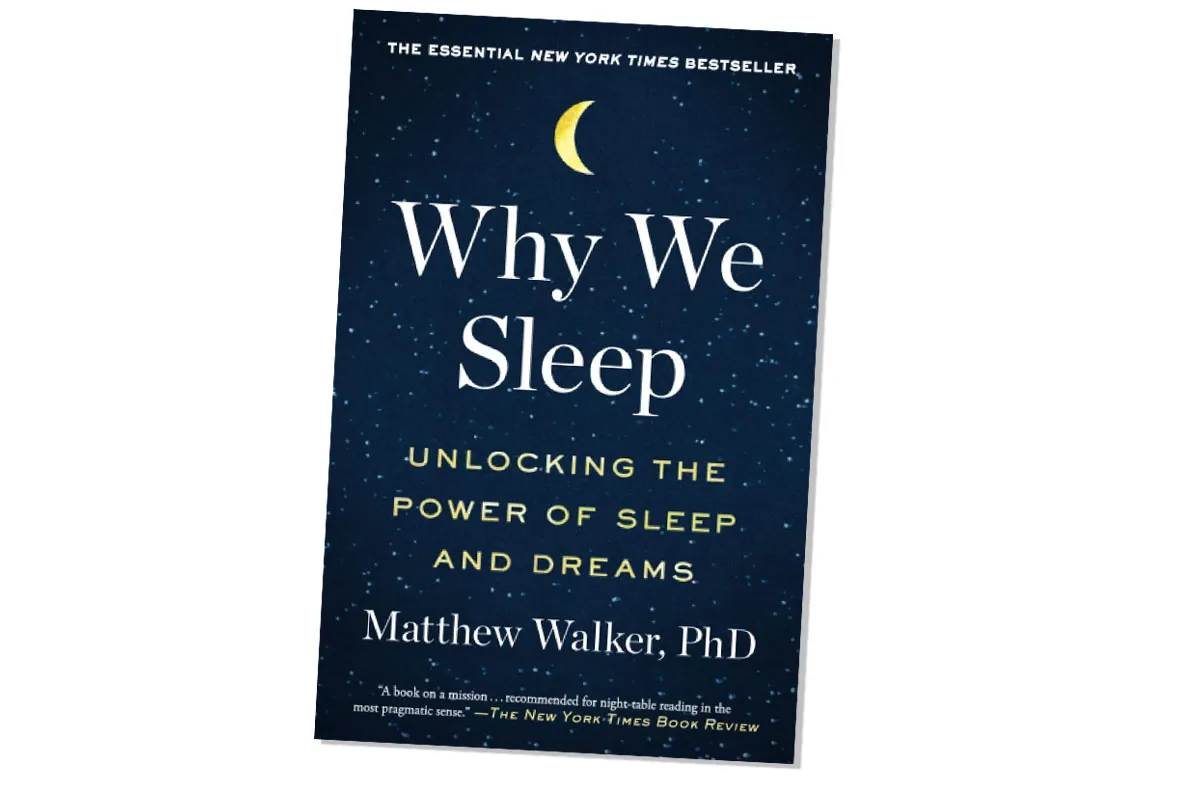Looking to bolster your health? You’re in luck: over the past five years, there have been major new discoveries in the world of sleep, dieting, exercise and more – discoveries that could lead to huge improvements in your wellbeing.
However, there’s a problem. This high-speed stream of science has meant many old health adages have been royally debunked, with new research offering incredible unseen insights into how your body works. So, how can you recognise which advice is worth paying attention to?
Glad you asked. Below we’ve assembled the best science-backed books that could actually transform your health and happiness in 2024.
The best science-backed books to improve your health and happiness in 2024
Life Time: The New Science Of The Body Clock, And How It Can Revolutionize Your Sleep And Health

Prof Russell Foster
It’s ticking right now: your inner clock, the natural circadian rhythm that advises your body on the best time to sleep, eat and think.
Are you in sync with it? If not, there could be significant health consequences. As author and University of Oxford neuroscientist Prof Russell Foster unpacks inLife Time, your biological timepiece can have a significant long-term bearing on your sleep, weight and even the likelihood of life-threatening strokes.
Fortunately, asLife Timeexplains, there are simple ways to identify your circadian type (night owl, morning lark or somewhere in between) and reset your clock. Foster’s book is also brimming with practical advice – from the healthiest time to exercise, eat and even take medication.
- Buy now from Amazon (£11.55), Waterstones (£10.99) or Foyles for books (£10.99)
The Good Life: Lessons From The World's Longest Study On Happiness

Prof Robert Waldinger and ProfMarc Schulz
If you want to live a healthier, happier and more fulfilled life, you must do one thing: value your relationships. That’s the major conclusion of Marc Schulz and Robert Waldinger, the two leads of Harvard University’s 80-year-long study into what really makes people happy.
InThe Good Life, the two psychologists compellingly explain the key findings of their research and how to apply them to your life. Foremost here is the concept of ‘social fitness’ – the strength of your relationships and interactions with others. AsThe Good Lifeargues, improving your social fitness will not only likely make you happier, but could also offer a significant boost to your physical and mental health.
Overall, it’s a great tapestry of fascinating science interwoven with touching personal stories from study participants.
- Buy now from Amazon (£14.23), Waterstones (£16.99) or Foyles for books (£16.99)
Read more:
- The new science of happiness: Simple, research-backed ways to boost your wellbeing
- Want to be happy? Stop trying to be
- We don't understand how emotions work. A neuroscientist explains why
Breath: The New Science Of A Lost Art

James Nestor
In total, the average person will breathe approximately 25,000 times a day. Yet, most of those breaths are likely to be sub-optimal, be it too shallow or through the mouth. And according to science journalist James Nestor, that matters. A lot. In fact, it has a massive impact on your overall health and wellbeing.
The claims ofBreathare certainly bold. For starters, Nestor argues that learning how to breathe correctly can rejuvenate internal organs, halt snoring, allergies, asthma and autoimmune disease, and even straighten scoliotic spines. Yet, despite sounding too good to be true, it’s all backed up by a weighty body of strong scientific evidence.
Doubtlessly, this book is somewhat light on breathing exercises and practical pointers. But it still contains enough achievable advice to buck your bad breathing habits.
- Buy now from Amazon (£9.85), Waterstones (£10.99) or Foyles for books (£10.99)
Why Calories Don't Count: How We Got The Science Of Weight Loss Wrong

Giles Yeo
If you want to lose weight, you simply have to burn more calories than you eat. It’s simple, practical advice that you’ve probably heard before. And it’s completely wrong.
As Prof Giles Yeo – presenter and BBC Science Focusregular – explains, not all calories are equal when it comes to managing your weight. Far from it: your body actually metabolises different food groups at different rates. This means that, for instance, for every 100 calories of protein you eat, you only absorb 70. So, tuck into 800 calories worth of steak, celery or sugar and your body will process a vastly different number of calories from each.
That’s the biggest lesson from this illuminating investigation into your dinnertime, but Why Calories Don’t Count also offers a sizeable serving of how to maximise your metabolism. Plenty of food for thought.
- Buy now from Amazon (£9.99), Waterstones (£10.99) or Foyles for books (£10.99)
Why We Sleep: The New Science Of Sleep And Dreams

Matthew Walker
Struggling with your slumber? Whether you’re an insomniac all out of ideas, or just somebody looking to level up your shuteye, sleep evangelist Matthew Walker has advice worth listening to. A professor of neuroscience and psychology at the University of California, Berkeley, he has been studying sleep for decades and has now condensed all the most intriguing findings from sleep studies across the world in this book.
Not only does Walker delve into – as the title suggests –whywe sleep, but alsohowsleep may have more of an impact on your health than even exercise or diet. Although mainly explaining the fascinating mechanics of sleep and dreaming, there’s plenty of actionable information inWhy We Sleep, from how to effectively manage your caffeine intake, to when to exercise for better rest, and even why wearing socks in bed could help you catch even more ZZZs.
- Buy now from Amazon (£10.11), Waterstones (£10.99) or Foyles for books (£10.99)
Read more: